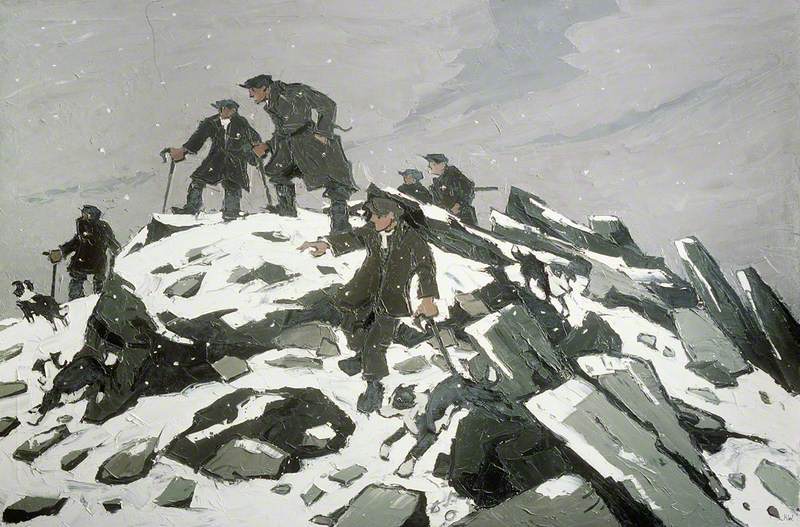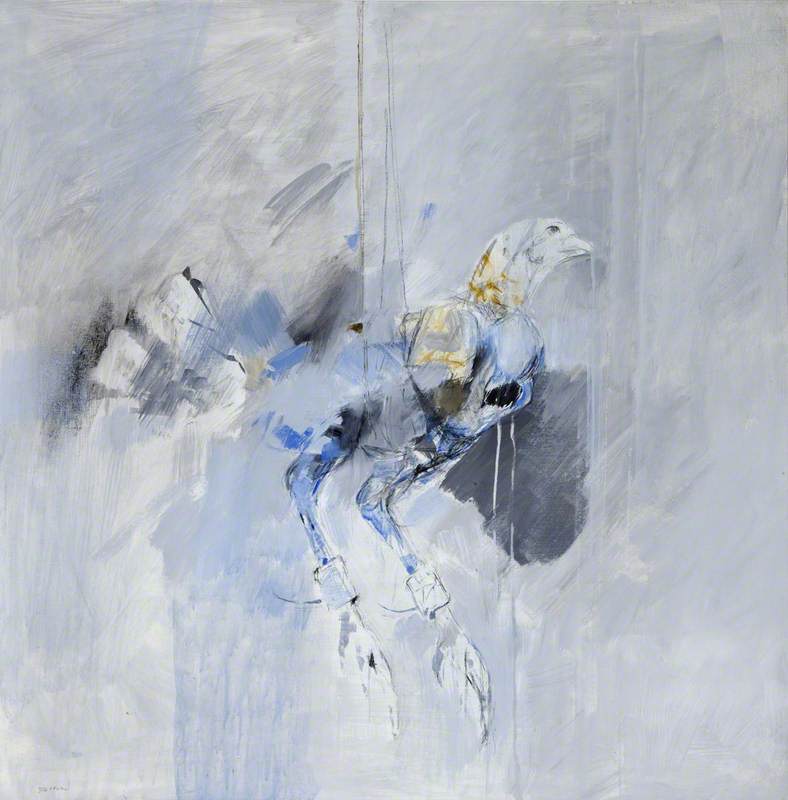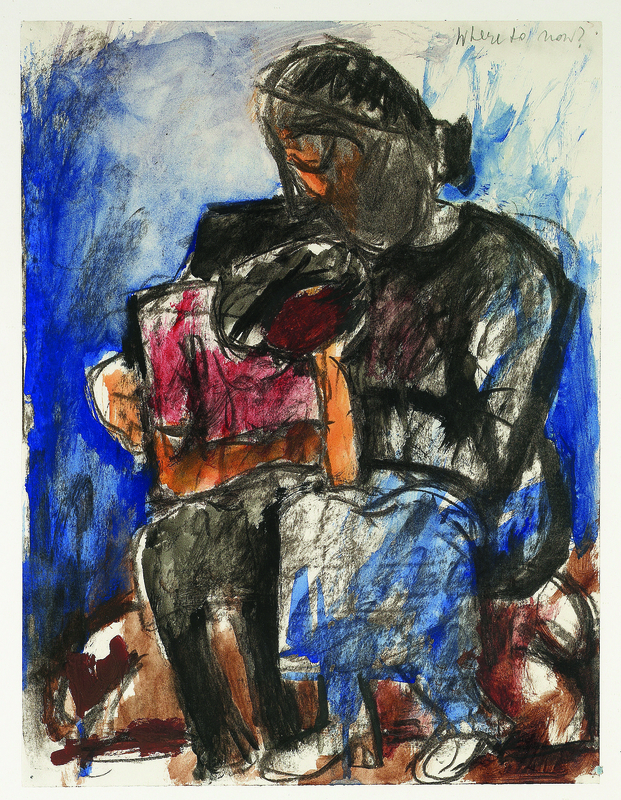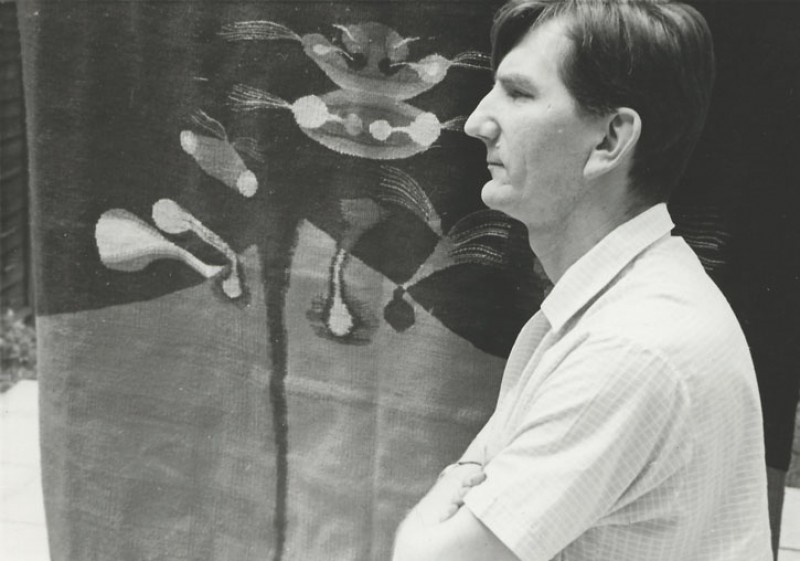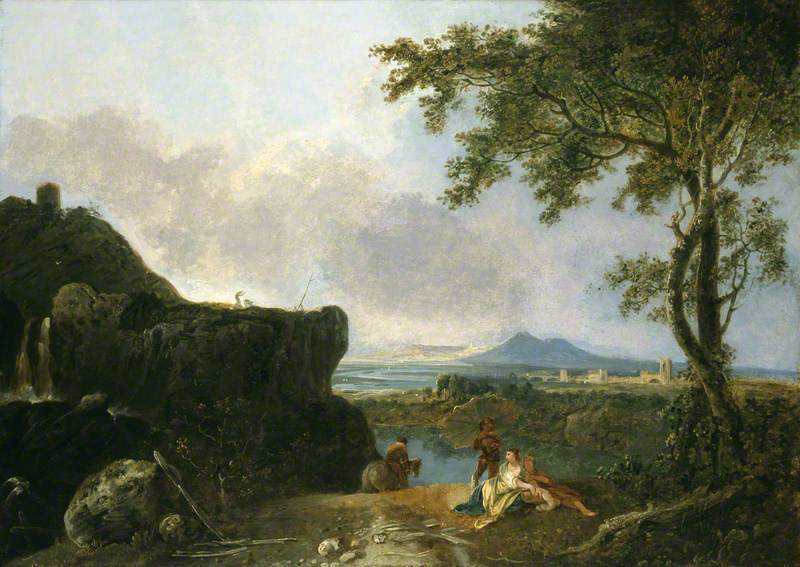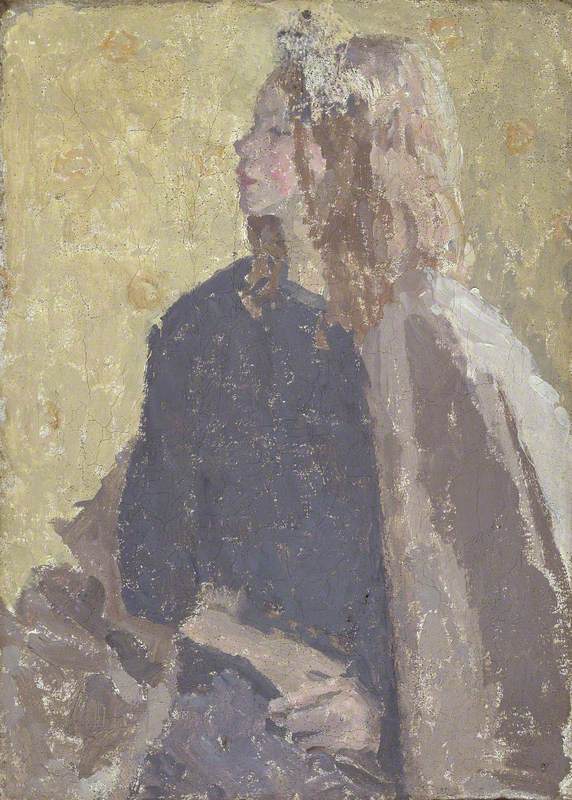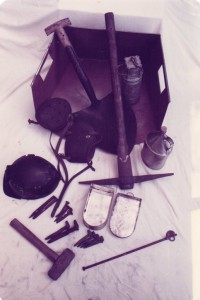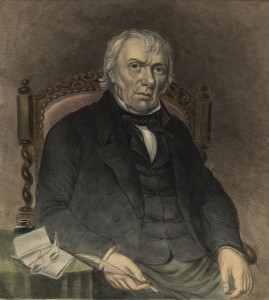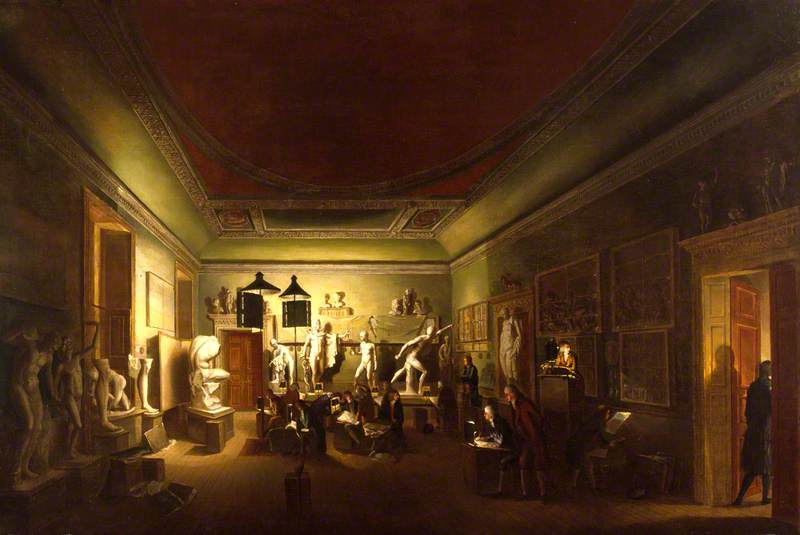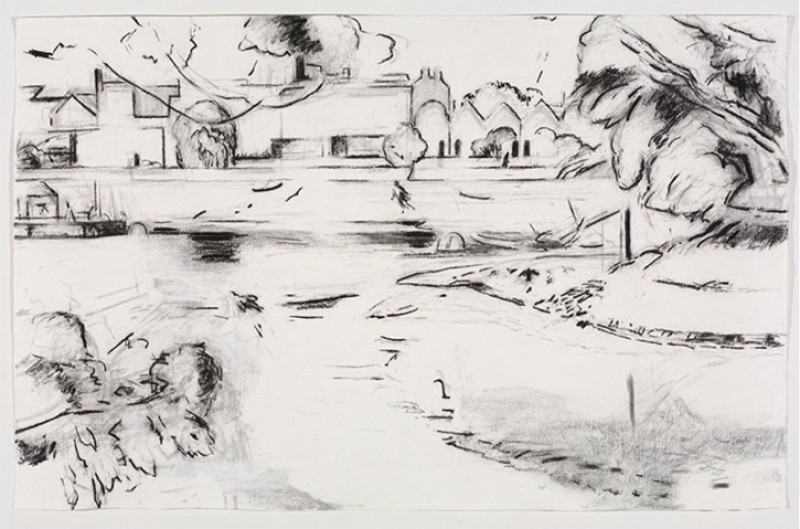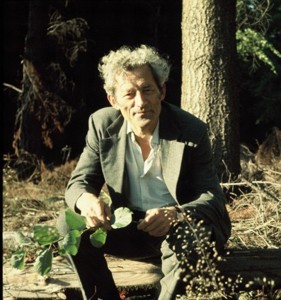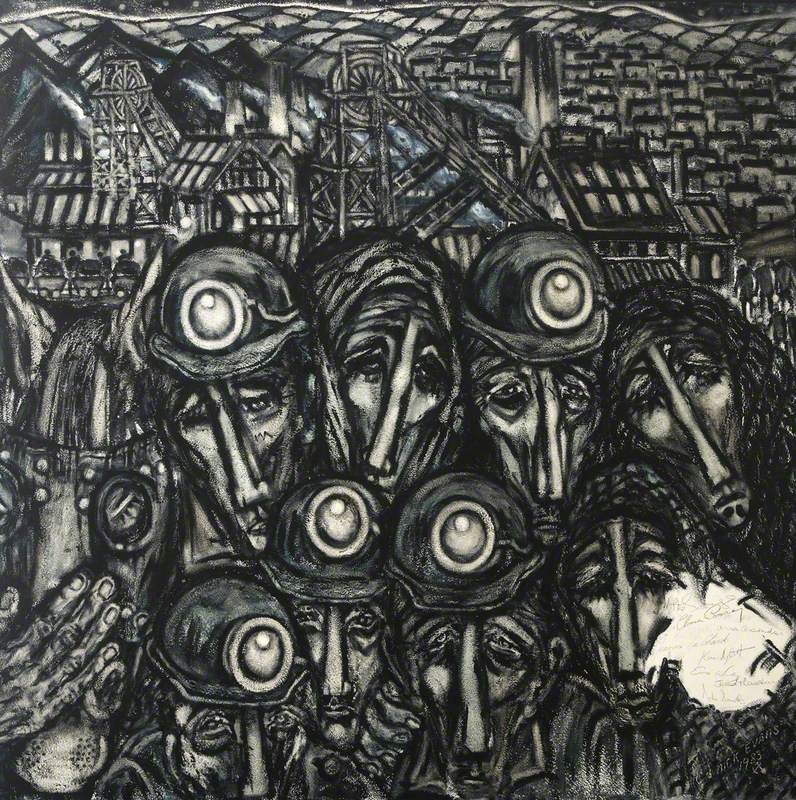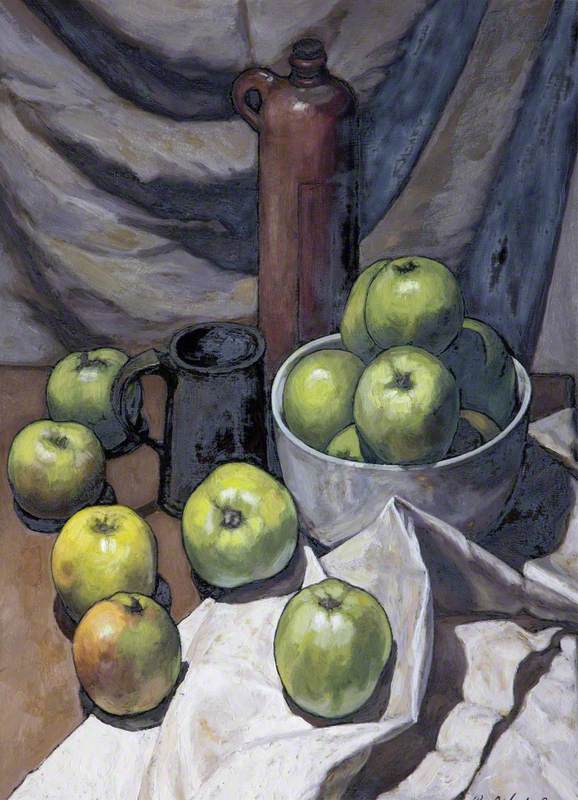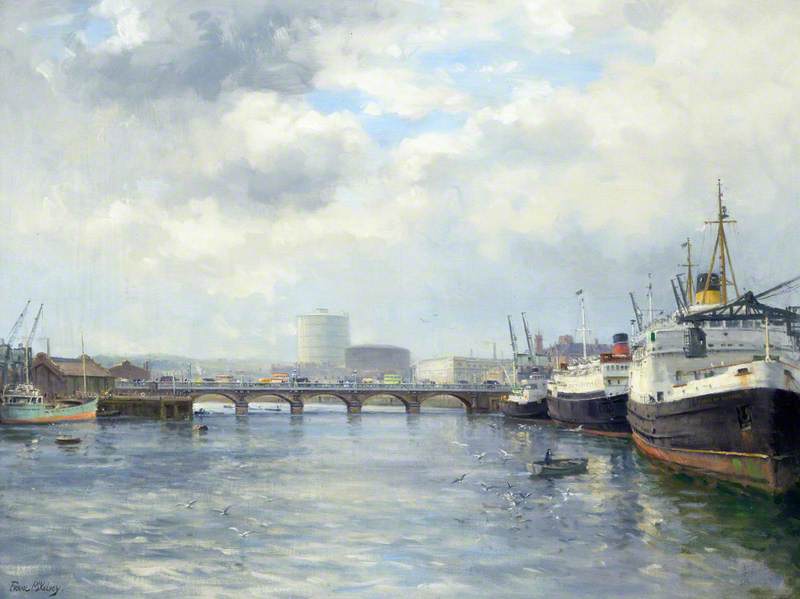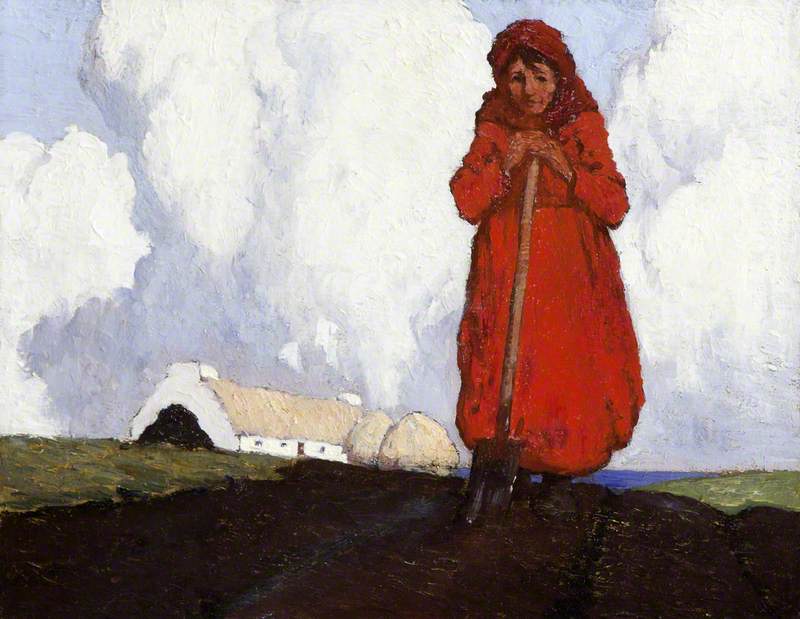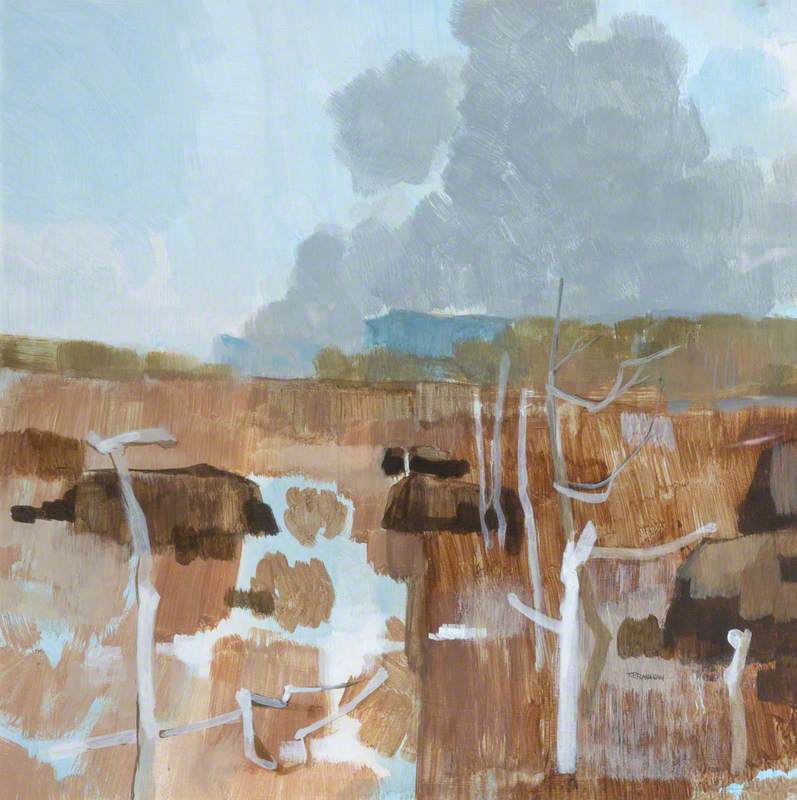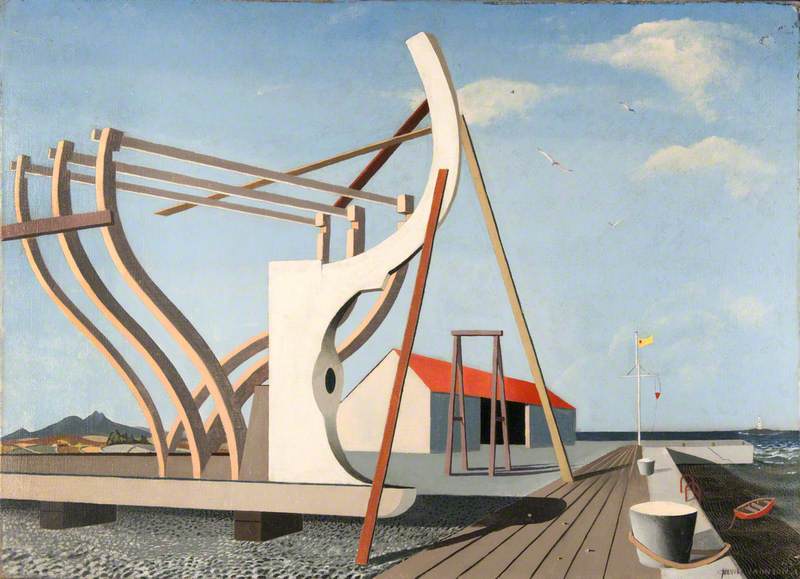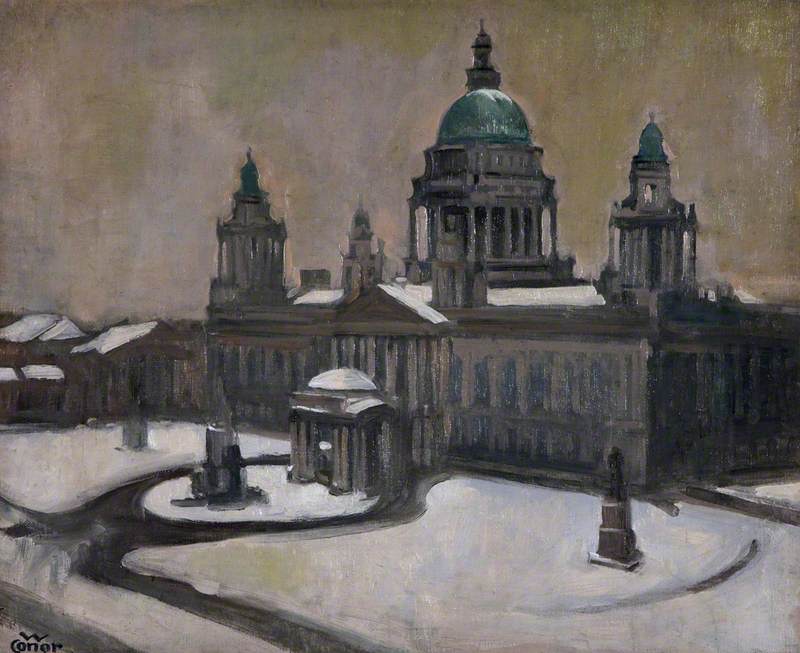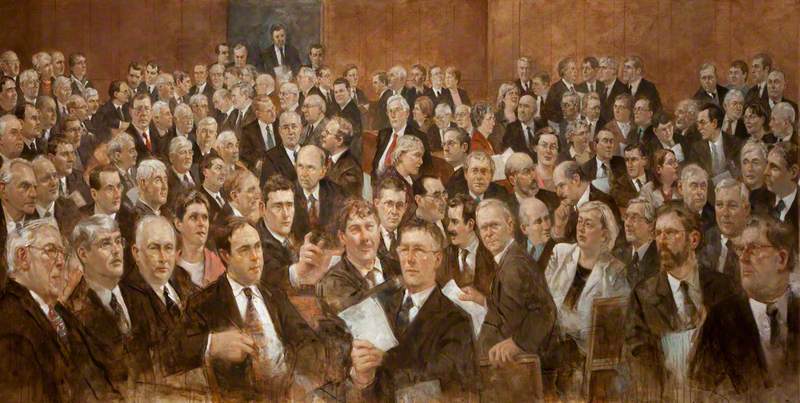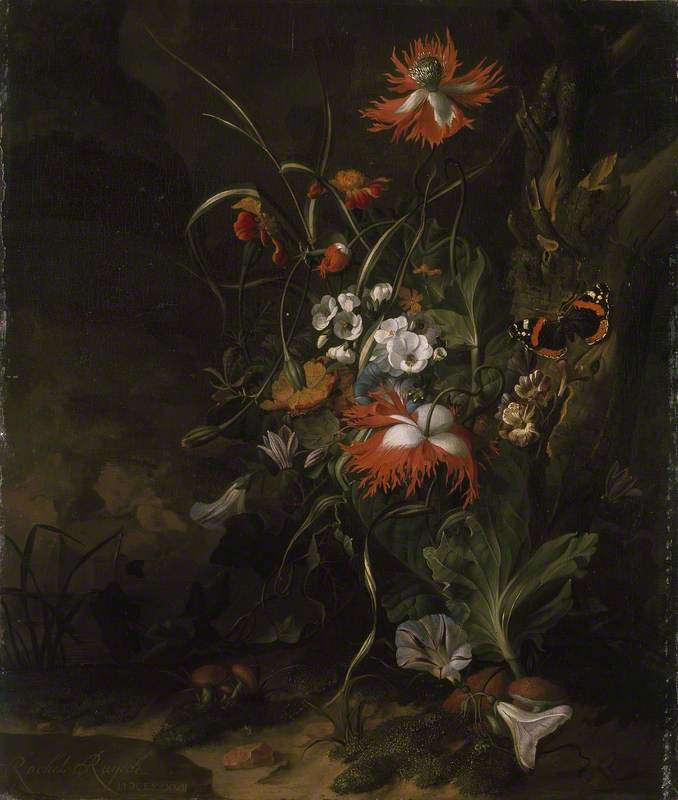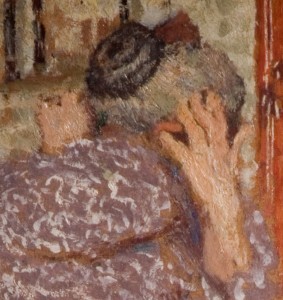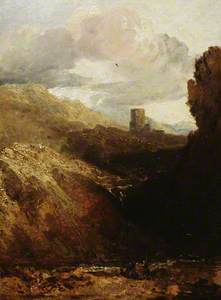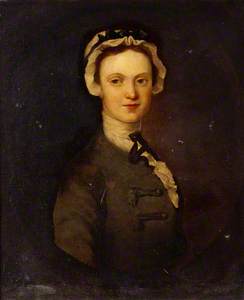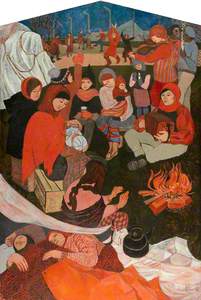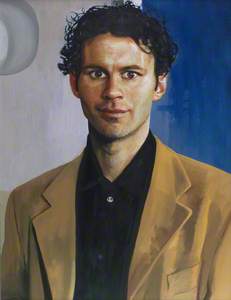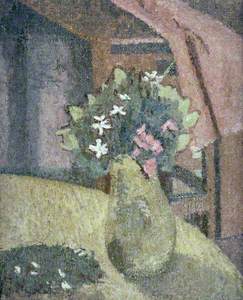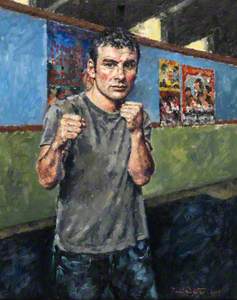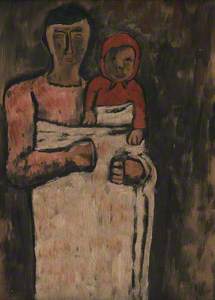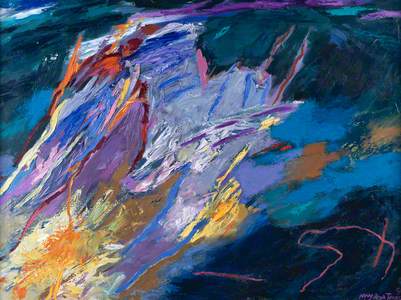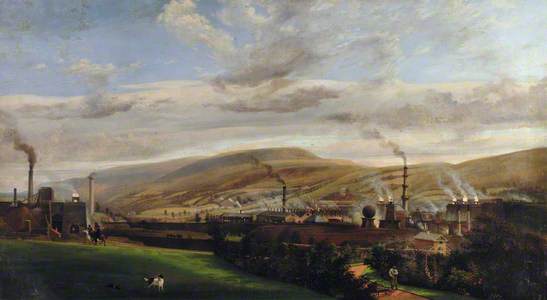SPANISH
The National Library of Wales is housed in a neo-classical building overlooking Cardigan Bay in Aberystwyth. The Library has been acquiring artworks since the early twentieth century, and its focus is on Welsh history, people and culture.
Avril Jones, the Library’s Director, has chosen some of her favourites from its collection.
1.
This work is one of the great romantic landscapes of Wales.
It shows the dramatic moment when Owain Goch, a Welsh prince, was led to Dolbadarn Castle in 1255. It became his prison for over 20 years.
Turner emphasises the steep cliffs up to it. He exaggerates their scale without reference to Snowdon Mountain which, in reality, looms above.
The paint is a wonderful combination of loose, thin washes together with deep swathes of dark colour, symbolising the pathos of the scene.
This painting visited Trelái School in Cardiff as part of Masterpieces in Schools in 2013.
2.
Miss Catherine Jones of Colomendy (c.1701–1786)
c.1740
Richard Wilson (1713/1714–1782) 
Catherine Jones was the cousin of Richard Wilson, a famous Welsh artist.
This portrait of her was produced when the artist was beginning his successful career.
It marks a high point in Wilson’s classic style of portraiture which combined traditional technique with an understanding of the sitter’s personality.
This work has a certain pathos: in the last year of his life, Wilson returned to Wales and was nursed by Catherine until his death.
Her house contained the last canvases of one of Wales’s best and most profound artists.
3.
Claudia Williams was at Greenham Common, in Berkshire, in 1984.
The camp was established in 1981 by a group of female activists who walked from Cardiff to Greenham.
The camp brought a new degree of determined, principled action to Britain, without violence or weapons.
This painting captures an aspect that surprised many observers. A sense of peace and harmony overlay the protests and demonstrations: here, mothers and children dance in hope and mutual respect.
4.
Footballer Ryan Giggs was born in Cardiff and moved to north Wales.
He was signed by Manchester United in 1987, on his fourteenth birthday, and has been with them ever since.
He is considered one of the greatest footballers of his generation, a player whose skill has been inspirational to United and to his national team of Wales.
The portrait emphasises Giggs’s powerful gaze. His ability to read situations on the pitch and act decisively has been key to his success.
5.
Gwen John, sister of the flamboyant Augustus, was born in Pembrokeshire. However, she never settled in Wales and found France more to her taste.
This canvas in a fine example of her work, painted in her characteristically dry style, with almost bare canvas and impasto brush.
The quality of the colour is quite beautiful, delicately manipulating a very limited palette of pink and green.
A tragic figure, Gwen represents the melancholic side of Welsh psyche.
6.
Boxer Joe Calzaghe is pictured in his gym in the south Wales valleys, close to his Newbridge home.
He is the most successful Welsh boxer of all time; a charismatic showman and athlete of the highest calibre.
Calzaghe’s career spans from 1993 to 2008. He never lost or drew a fight, despite being knocked down in several of his professional contests.
In his last fight he beat American Roy Jones, Junior, at the iconic Madison Square Garden, New York.
7.
Josef Herman was a Polish artist who escaped to south Wales from Europe in the 1940s. He found a home in the Swansea valley, at Ystradgynlais, amongst the miners and their families.
This painting is an example of how ‘Jo bach’, as the miners called him, produced work based on his observations of local working people, celebrating them in their everyday lives.
Simultaneously, it’s more than just a portrait. The artist creates a Madonna and child – a universal symbol of love and care.
8.
Euros Hughes Irrigating His Fields
1969
Kyffin Williams (1918–2006) 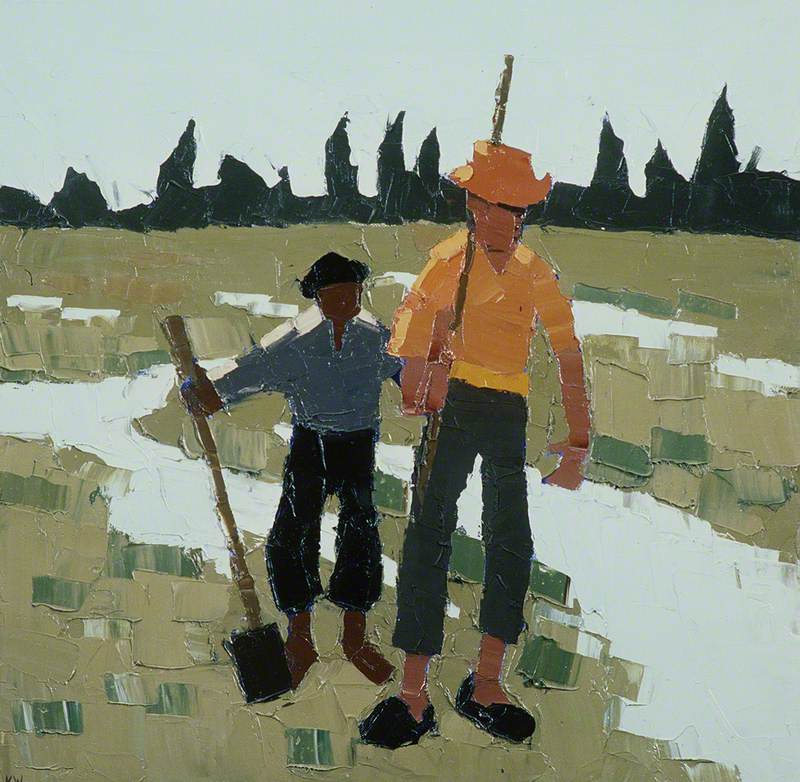
One of the great treasures of the Library is the Sir Kyffin Williams collection.
In 1968, Williams travelled to Y Wladfa (the ‘Welsh Colony’) in Argentina which was established in 1865 by a group of Welsh emigrants.
He intended to bring back a true picture of the land, its people and natural history.
He took with him a variety of media, and tried to allow the subject to dictate which should be used, producing a mixture of styles. This proved to be a formative experience in his artistic development.
9.
Mary Lloyd Jones is well known for her bold, expressionist paintings, which are noted for their use of vibrant and rich colour.
Cwm Rheidol is a good example of her semi-abstract canvases. She combines observation and feelings in a cornucopia of paint, capturing the essence of the place. This landscape of rare beauty is painted from the inside out.
Jones explains her work, ‘My aim is that my work should reflect my relationship with the land, an awareness of history, and the treasures of our literary and oral traditions’.
10.
Penry Williams was born to a stone mason family in Merthyr Tudful.
He moved to Rome where he produced countless Italianate canvases for those on the Grand Tour.
This painting is clearly of south Wales and was probably painted on one of Williams’ visits home. The exact location is a matter of much debate and it may be a composite of several sites.
This work was included in the Library's 2014 Welsh Landscape exhibition.
Avril Jones, Director, National Library of Wales
Editor's note: This story first appeared on the BBC Arts website. The BBC is an Art UK project partner.
